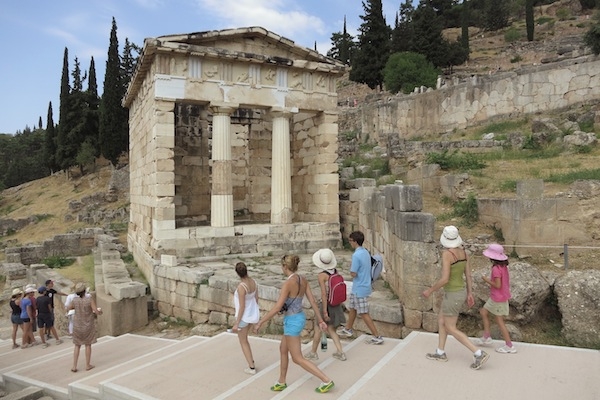This column comes to you from the cruise ship Minerva in the Greek port of Piraeus. Why I’m aboard is a story for another day — and let me admit up front that, as financial-crisis reportage goes, observations provoked by a Homeric vista of islands and cocktails on the poop deck are unlikely to match Newsnight’s Paul Mason choking through tear gas outside a burning Athens bank. But still there are parables to be trawled from the placid Aegean waters.
As the anti-austerity bandwagon gathers momentum, the Greeks seem to be in deep denial about the other element of the recovery equation. Even if you sincerely believe that fiscal pain will make matters worse, you surely have to admit that a reinvigorated economy can only be built by working harder, exploiting competitive advantage, paying taxes, and not whingeing.
Tourism contributed 16 per cent of Greek national income last year, and that proportion will rise as the finance and property sectors shrink and the culling of state employees (15,000 lost their jobs this week) continues apace. So you’d think the nation would be pulling together like ancient oarsmen to attract and delight the world’s holidaymakers. ‘Greece expects record tourist year as strikes recede,’ was indeed the headline on a report of a speech by the president of the Athens-Attica Hotels Association. But it sat alongside news of a stoppage by the Pan–Hellenic Seamen’s Federation to celebrate International Workers’ Day — forcing Minerva to dash for the Corinth Canal before pilots form a picket line — and disruption of trains and ferries.
Meanwhile, members of the union of tax workers walked out in protest at the stress of administering tax surcharges that have been added to electricity bills — and the union of chartered accountants came out in sympathy.









Comments
Join the debate for just £1 a month
Be part of the conversation with other Spectator readers by getting your first three months for £3.
UNLOCK ACCESS Just £1 a monthAlready a subscriber? Log in